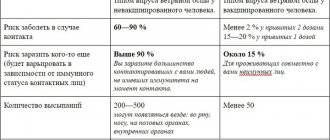Home — For the public
- Map of medical organizations
- Vaccination
- Clinical examination
- Fluorography
- Addresses and opening hours of clinics
- Emergency rooms
- Oncology
- Where to take an HIV test
- Healthy child's office
- Services
- Prevention of CVD
- Disease Prevention
- World Patient Safety Day
- Newspaper "Medical News"
- specialist
- School of Health
— All about vaccination
- Appeal to parents
- Opening hours for vaccination clinics in Yekaterinburg
- Opening hours of vaccination clinics in the Sverdlovsk region
- Vaccinations: I want to know everything
- Child vaccination
- Regional vaccination calendar for adults
— Vaccinations: I want to know everything — Vaccinations for traveling abroad
You should take care of the need for vaccinations for traveling abroad at least 4–8 weeks before the intended trip, since
some types of vaccinations are carried out several times and for safe travel to a particular country it may be necessary to carry out not one, but several vaccinations, between which a certain interval must be observed;
It takes time to develop immunity to the infection against which the vaccination was carried out, and this is at least 2-3 weeks.
Our instruction article will help you understand which vaccinations you will need when traveling to a particular country.
The most popular tourism destinations in the Russian Federation
According to 2021 data, Russians most often choose these countries and regions for summer holidays:
- Türkiye;
- Italy;
- Greece;
- Spain;
- Tunisia;
- Cyprus;
- Abkhazia;
- Georgia;
- Thailand;
- Montenegro;
- France;
- China;
- USA;
- Bulgaria;
- Vietnam.
In general, the tourist interest of Russian citizens is as follows (for each region we indicate the three most visited countries):
- Americas – USA, Dominican Republic and Cuba;
- South and East Asia - Thailand, China, Vietnam;
- Australia and Sub-Saharan Africa – Tanzania, Seychelles and Australia;
- Europe – Italy, Greece, Spain;
- North Africa and the Middle East - Türkiye, UAE, Tunisia;
- Near abroad - Georgia, Abkhazia and Belarus.
Throughout the year, the distribution of interest among tourists from the Russian Federation changes. Demands for the share of European countries (eg Germany and Austria) are much higher in winter than in the summer months. Also, during the cold season, Russians are more often interested in traveling to those countries where they can swim and sunbathe - Egypt, Thailand and India.
A trip to another country is not always only an exciting journey, but also the likelihood of infection with various dangerous infectious agents. That is why, when preparing for a trip abroad, you should think not only about collecting luggage and paperwork, but also about protecting your health. To visit a particular country, you will need to undergo various types of vaccinations, and our article will tell you which ones you will need.
Greece: the number of infections is growing
With the help of tough statements and decisions, the head of the Greek government is also trying to take control of the pandemic in his country. “We are not going to shut down the whole country again because of the attitude (to vaccination. - Ed.) of some,” Greek Prime Minister Kyriakos Mitsotakis said earlier this week. In the near future, residents of the country will be allowed to be in indoor restaurants and cultural institutions only if they have been vaccinated against coronavirus. Medical workers and nursing home employees must also be vaccinated without fail, otherwise they risk being suspended from work.
There are almost no protests against vaccination in Greece - the number of infections here has again increased significantly
The Greeks are not particularly outraged by the authorities' demands. This may be due to the fact that the majority considers them truly necessary: against the backdrop of a significant easing of restrictions previously introduced to combat the pandemic, the number of new infections in the country has increased sharply over the past two weeks. Experts say one of the main reasons for this is the resumption of club life and night parties among young people. Given the precarious state of the Greek healthcare system, it is not surprising that the Greek authorities have sounded the alarm.
Vaccinations for travelers: where to start and what to pay attention to before your trip?
Sometimes it seems that it is very difficult to understand vaccination on your own and it is better to immediately contact a private clinic, which will carry out all the vaccinations and you will not delve into all the intricacies of this process. However, if you move step by step, you can easily figure out vaccination yourself, and significantly save time and money.
You will still have to visit a doctor, since without his referral, which is issued if there are no contraindications to a particular vaccination, no one will give you the vaccinations you need to travel abroad. A referral for their implementation is issued by a therapist or pediatrician. In difficult cases, it is better to discuss questions about vaccinations with such highly specialized specialists as an immunologist or an infectious disease specialist. They will help you figure out what vaccinations are needed in a particular situation and draw up a vaccination plan.
With a rational approach to vaccination before traveling abroad, you can get by with just 1-2 visits to the doctor:
- First, you need to clarify whether all vaccinations from the national calendar of preventive vaccinations have been completed. You can find out details about your vaccination history with the help of your local doctor at the clinic at your place of residence.
- All missing mandatory vaccinations included in the national calendar of preventive vaccinations can be carried out free of charge in the clinic at your place of residence, and additional ones (for example, against yellow fever, Japanese encephalitis, etc.) can be carried out for a fee in a private medical center.
- If you do not need to save on medical services, then you can get all the vaccinations that are missing and necessary in your opinion in a private clinic for a fee. However, before visiting her, you will still have to raise the history of your vaccination according to the national calendar of preventive vaccinations at the clinic at your place of residence.
WHO recommends starting vaccinations for travel abroad 4 to 8 weeks in advance. All preventive vaccinations according to the national calendar are performed free of charge. There is also a vaccination calendar for epidemic indications. One of these indications may be traveling to another country.
RUSSIAN VACCINES STILL NOT APPROVED BY WHO
Last week, WHO representatives announced the suspension of our country’s application for approval of Sputnik V.
Let us recall that this year, as part of the prequalification procedure for the Russian vaccine, WHO inspected four of the seven Russian production sites, publishing comments on the work of one of them. As the Ministry of Industry and Trade of the Russian Federation reported, after the enterprise eliminates the comments, WHO specialists will be able to re-inspect this site.
The WHO reported that there are no changes in the organization’s position on Sputnik V as of mid-September: additional data is still awaited from the Russian side, which is necessary to review the results of the audit and consider the remaining parts of the dossier. After this, the process can continue.
The prospects for approval of Russian vaccines at the EU level are also vague. Let us remind you that now only a few countries in the bloc recognize and allow tourists vaccinated by it: Croatia, Cyprus, Greece, Bulgaria, Estonia.
Many EU countries would like to accept Russian travelers, but the main condition for this is the recognition of Russian vaccines at the pan-European level or WHO. So far, the WHO has approved AstraZeneca, Janssen, Moderna and Pfizer/BionTech, as well as two Chinese vaccines: Sinopharm and Sinovac.
Mandatory vaccinations according to the national calendar of the Russian Federation
As a rule, compulsory vaccinations are regularly carried out for children in maternity hospitals, kindergartens, schools and clinics within the time limits established by the national calendar of preventive vaccinations. Adults are also vaccinated according to the calendar. Most often, vaccination of adults is carried out if they belong to decreed groups of the population (medical workers, employees of educational institutions, trade, catering, etc.), but it also happens that in some institutions (usually office workers) the need for vaccination is even don't remind.
Some of the vaccinations provide long-term immunity and adults do not need to repeat them (for example, if you were vaccinated against measles and rubella in childhood). However, some of the vaccinations may not yet have been included in the national calendar (for example, hepatitis B vaccination) or were not performed in childhood due to a medical exemption or other reason (for example, parental refusal). In such cases, vaccinations, including “children’s” ones, may also be relevant for adults, and doctors when traveling to another country recommend all age-appropriate vaccinations.
The main vaccinations for adults, according to the national preventive vaccination calendar, are:
- diphtheria and tetanus - performed once every 10 years (for children, the last vaccination is performed at 14 years old);
- measles - vaccination is carried out in childhood (at 1 year and at 6 years), if for some reason not vaccinated in childhood, double vaccination is required for all adults under the age of 35 years, from 36 to 55 years this vaccination is carried out to persons from the group risk (for example, those working in medical, educational, social institutions, in trade and catering, etc.);
- hepatitis B - vaccination is carried out for adults under 55 years of age 3 times, if not vaccinated earlier;
- rubella - vaccination is performed 2 times for all girls and women under 25 years of age who have not been previously vaccinated;
- influenza - vaccination is carried out once before the flu and ARVI season and is necessarily indicated for representatives of certain professions, students, conscripts, pregnant women, people over 60 years of age, especially when traveling abroad to countries during unfavorable periods for this infection.
HOW MUCH DOES A VACCINE TOUR TO GERMANY COST?
Tour operators also offer vaccination tours to Germany. Since September, such a product has been offered by BSI Group together with German partners.
Pfizer/Biontech vaccination in Munich – 580 euros per person, one dose (2 vaccinations required). Johnson & Johnson vaccination in Baden-Baden – 870 euros per person (one vaccination required). The price includes vaccination and medical invitation. Translator services are additionally paid - from 60 euros per hour (minimum 2 hours). You will also need to pay for flights and accommodation.
The BSI Group adds that organizing vaccination is only possible when booking hotels and additional services through the company. In this case, it is necessary to have a valid Schengen visa.
Vaccinations carried out according to epidemic indications
According to epidemic indications, when traveling to a country with a potentially dangerous risk of infection, vaccinations are carried out against the following infections:
- tick-borne encephalitis;
- yellow fever;
- typhoid fever;
- hepatitis A;
- mumps;
- meningococcal infection;
- pneumococcal infection;
- rabies.
These vaccinations can be carried out in local clinics. But before this, you need to find out from your local general practitioner whether you need such a vaccination before leaving, and also check whether a vaccine against these infections is available at the clinic.
Vaccinations for epidemic indications must be carried out if you are planning to travel across the territory of the Russian Federation, for example, vaccination against tick-borne encephalitis. Such a vaccination will not be superfluous when visiting forests in Austria, the Czech Republic, Switzerland, Belarus and other countries. When traveling to Thailand, India and a number of other disadvantaged countries from an epidemiological point of view, you may need vaccinations against hepatitis A, typhoid fever, yellow fever and other dangerous infections. For example, when visiting countries in Africa, Asia, Central and South America, vaccination against rabies, yellow fever and hepatitis A is recommended.
When visiting which countries is yellow fever vaccination required and how is it carried out?
The list of countries before visiting which it is necessary to vaccinate against yellow fever can be clarified using the information from the Rospotrebnadzor letter “On the prevention of yellow fever.”
In our list we provide a list of those states that are endemic themselves and require vaccination upon entry upon arrival from endemic regions:
- vaccination is required upon entry into the country: Angola, Argentina, Brazil, Burundi, Democratic Republic of the Congo, Ghana, Gabon, Guinea-Bissau, Cote d'Ivoire, Cameroon, Congo, Peru, Togo, Uganda, Sierra Leone, French Guiana, Chad, Central African Republic, South Sudan;
- vaccination is required when entering from a country endemic for this disease (it is not required from other countries, but the country has a risk of contracting yellow fever in some of its areas): Bolivia, Venezuela, Gambia, Guyana, Guinea, Kenya, Colombia, Liberia, Mauritania, Nigeria, Panama, Paraguay, Senegal, Suriname, Sudan, Trinidad and Tobago, Ecuador, Ethiopia, Equatorial Guinea;
- vaccination may be required when entering the country from other endemic countries for this infection: Zambia, Rwanda, Somalia, Sao Tome and Principe, Tanzania, Eritrea.
Vaccination against yellow fever is carried out once and repeated once every 10 years (if necessary). Vaccination should be carried out no later than 10 days before leaving for an enzootic area. The injection is performed subcutaneously under the shoulder blade or intramuscularly in the deltoid muscle area.
When visiting which countries is vaccination against Japanese encephalitis required and how is it carried out?
The carriers of this infection are mosquitoes and it is recommended that tourists traveling from April to October be vaccinated against it. Vaccination against Japanese encephalitis is recommended when visiting the following countries:
- China;
- India;
- Taiwan;
- Japan;
- Thailand;
- Butane;
- Bali;
- Maldives;
- Iran;
- Iraq;
- Bangladesh;
- Vietnam;
- Myanmar;
- Brunei;
- Indonesia;
- Cambodia;
- Kuwait;
- Nepal;
- Malaysia;
- Pakistan;
- South and North Korea;
- Sri Lanka;
- Philippines.
The vaccine, in the absence of contraindications to its use, is administered 2 times with a break of 28 days and can be administered simultaneously with other vaccinations. The last dose is administered at least 1 week before the start of the trip.
China is preparing for vaccination
Chinese authorities have approved the use of vaccines for children and adolescents aged three to 17 years only in emergency cases. In June, the drug CoronaVac, developed by the Chinese company Sinovac, received approval. According to a study published in the medical journal The Lancet, it was highly effective in trials among patients in this age category. On July 16, an inactivated vaccine created by the Beijing Institute of Biological Products (part of the pharmaceutical company Sinopharm) was approved for use for similar purposes.
The date for mass vaccination of citizens aged three to 17 years in China has not yet been announced. As Zhang Yuntao, vice president of China National Biotec Group (CNBG, a division of Sinopharm), said on China Central Television, according to preliminary estimates, drugs for vaccinating children and adolescents will hit the market in about a year.











